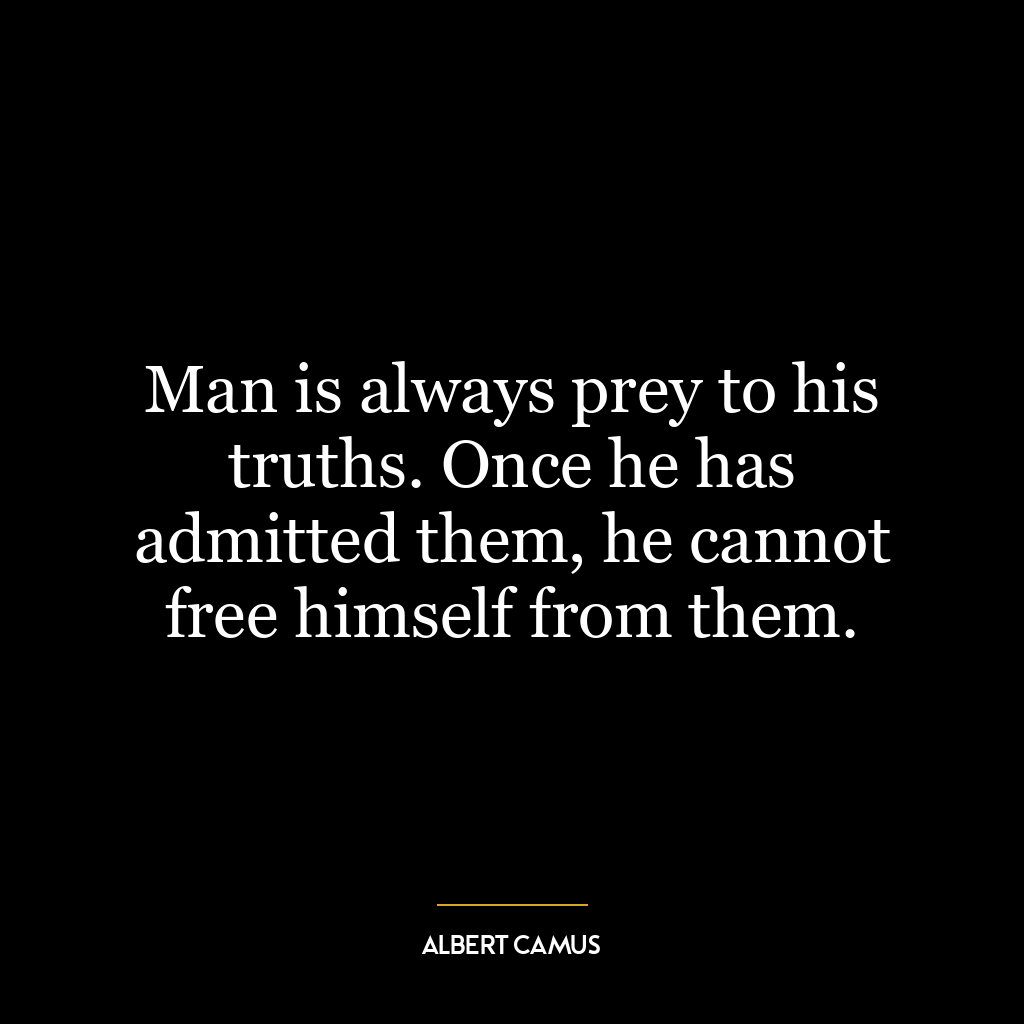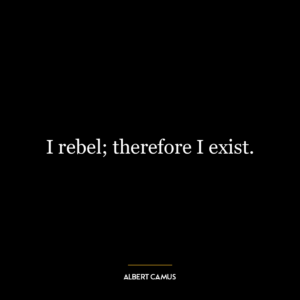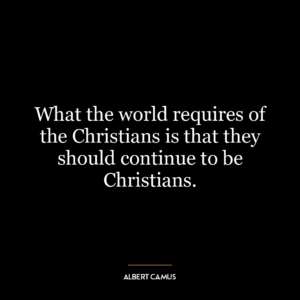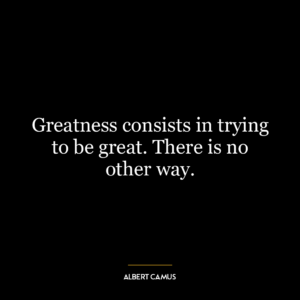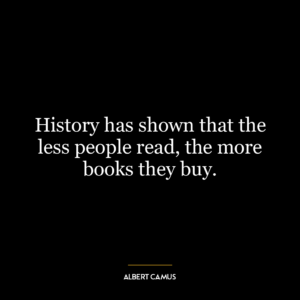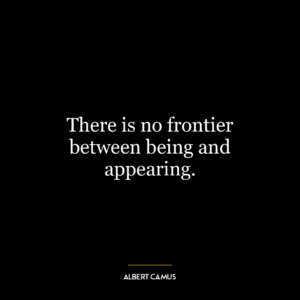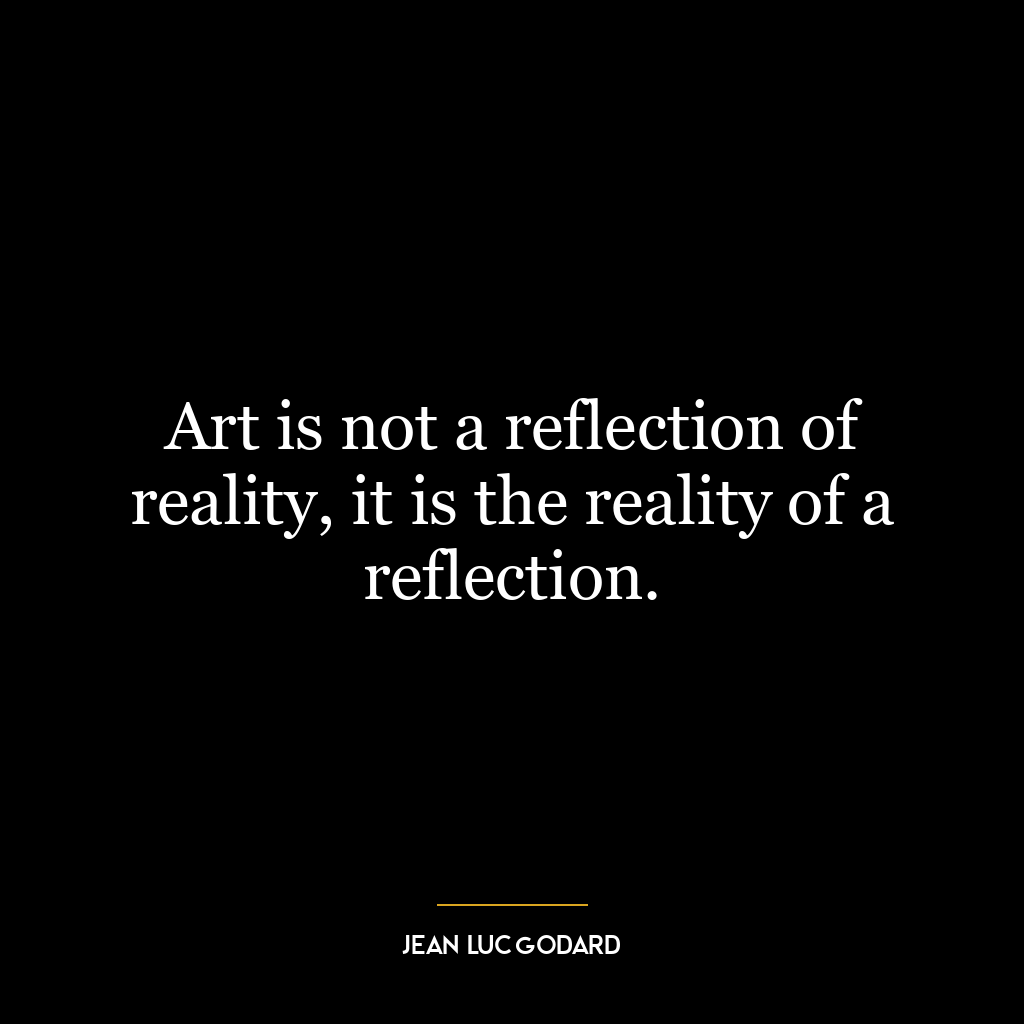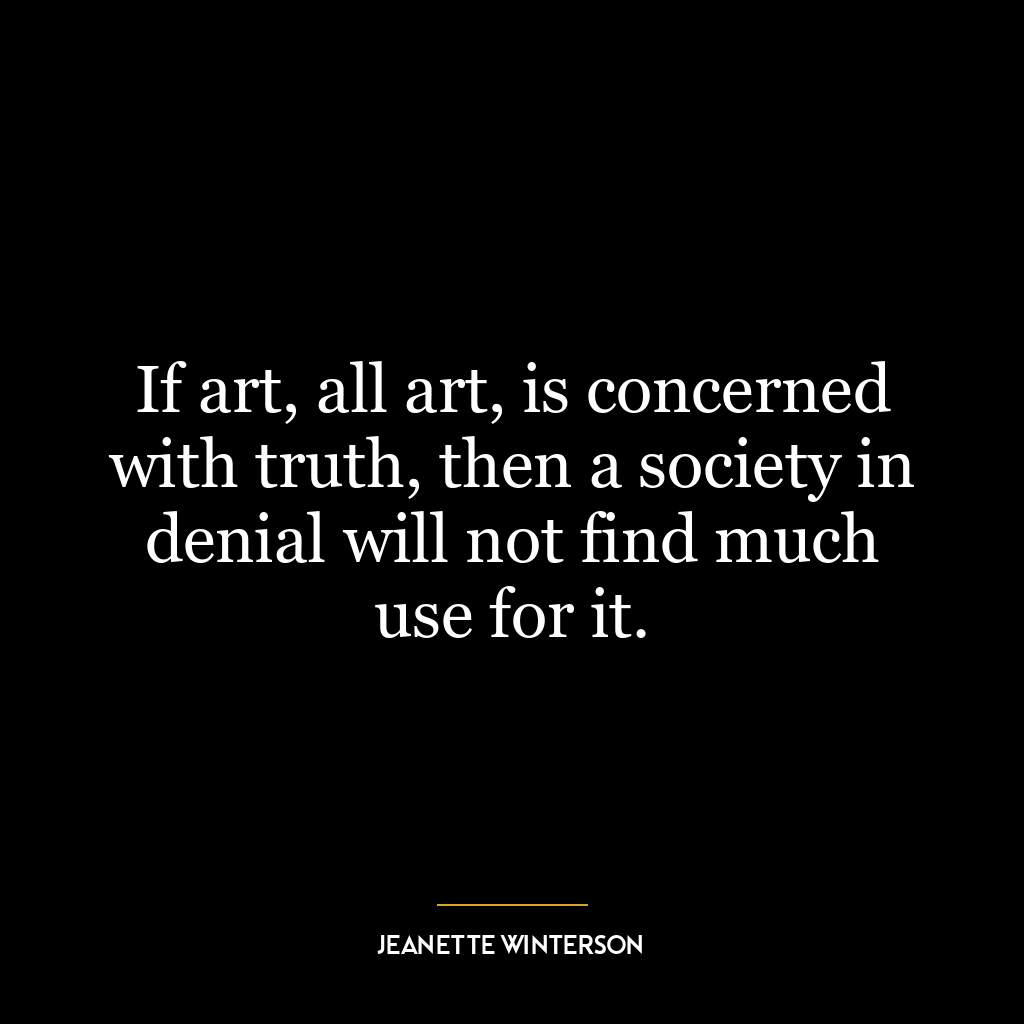Man is always prey to his truths. Once he has admitted them, he cannot free himself from them.
This quote is a profound reflection on the human condition, and it speaks to the power and influence of personal beliefs or ‘truths’. When a person accepts a truth, it becomes a part of their identity, shaping their perception of the world and influencing their actions and decisions. They become ‘prey’ to these truths, in the sense that they are bound by them and can find it extremely difficult to change or escape from them.
The quote suggests that our truths can limit us, confining us within their boundaries and potentially preventing us from seeing or accepting alternative perspectives. We can become so attached to our truths that they can trap us, making it difficult for us to grow, evolve, or adapt to new situations.
In today’s world, this idea is particularly relevant. We live in an era of information overload, where a multitude of truths coexist and often clash. Social media, for instance, can echo our own beliefs back to us, reinforcing our existing truths and making it harder for us to consider different viewpoints. This can lead to polarization, where people are so entrenched in their own truths that they cannot understand or empathize with those who hold different beliefs.
In terms of personal development, acknowledging the power of our truths is crucial. It can encourage us to question our beliefs and consider whether they are serving us or holding us back. We can strive to be more open-minded, willing to challenge our truths and consider alternative perspectives. This can lead to personal growth, as we free ourselves from the constraints of our existing truths and open ourselves up to new possibilities.
In conclusion, while our truths can provide us with a sense of identity and purpose, they can also limit us. Recognizing this can empower us to take control of our beliefs, rather than allowing them to control us.

